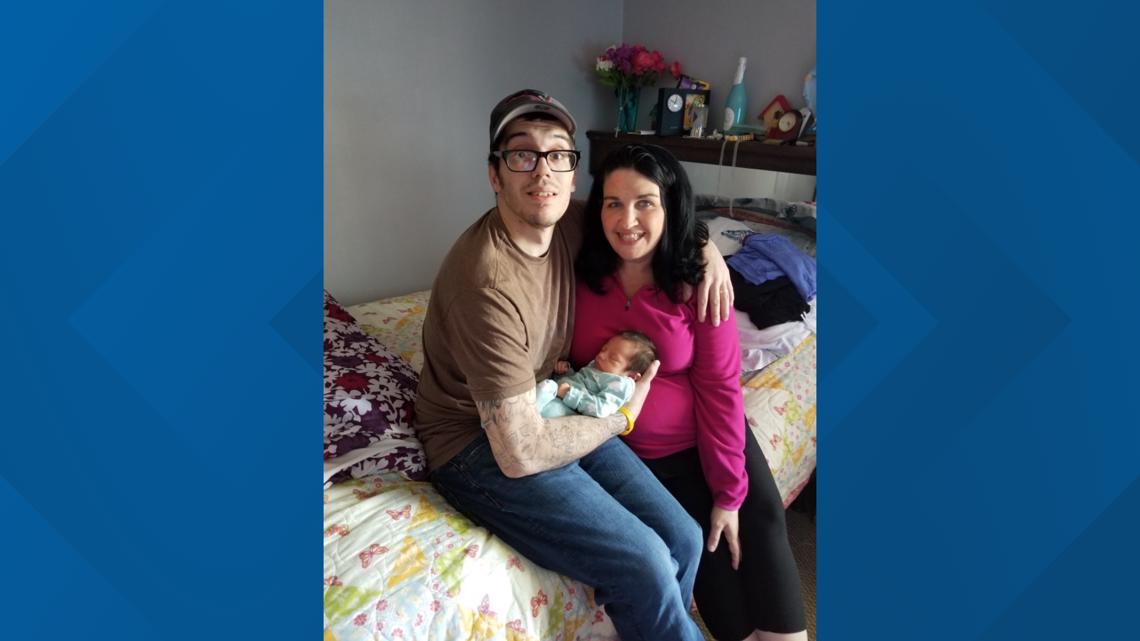ROCKLAND, Maine — Denise Belanger is waiting for her son to come home from Knox County Jail.
For as long as she can remember her son, Louis Rubino, has been in and out of trouble.
"As a child, he was always troubled," Belanger said. "We would steal... he always fought with his siblings, cousins, there was always a fight."
Belanger said one time she was called into his school for a fight and when she arrived, administrators were pinning him down to restrain him.
"People either loved him or they hated him," Belanger said.
Eventually, his behavior caught up to him and he started facing charges as a young man. Over the course of the last 20 years, Belanger said her son has been in and out of jail.
"He's missed a lot of life, I said Louis, you were gone. It's nobody's fault but your own."
During his upbringing, Rubino depended heavily on his grandmother, as Denise was just 18 years old when she had him.
"He never did anything wrong in front of my mother," Belanger said. "My mom passed away in February, and we had a celebration of life. He was unable to attend that."
That moment was crushing. And while his family was honoring a loss, Rubino was suffering in Knox County Jail, deprived of the medication he and his family said was helping.
While Rubino was in Maine State Prison he was on upwards of 80 milligrams of Ritalin.
According to the National Institute of Health, the normal prescribed dose of Ritalin is between 20 and 30 milligrams, sometimes up to 60.
"I wish Aspirin did what that stuff did," Rubino said from his Knox County Jail cell. "I was really living a different life."
Rubino said he was also on Ritalin for a brief period of time when he was home, and said he felt like he could work and not feel agitated or impatient with other people.
But when Rubino reoffended and was sent to Knox County Jail in 2022, the contracted physicians there slowed his prescription, eventually stopping it. This is according to his medical file obtained by his family.
In his report, Rubino was quoted by a physician for complaining about the mental health services in the jail.
"Nobody is doing anything for my mental health," his report said.
"I'm not saying my side doesn't deserve to be punished for the crimes they commit, but does the punishment really fit the crime for people like me?" Rubino said.


Knox County Sheriff Patrick Polky, who took over as sheriff in January, said more work needs to be done statewide on mental health in jails, and if Rubino is truly suffering in his jail without Ritalin, something needs to be done to prevent it in the future.
"Maybe there was no communication between the DOC doctors and mine... I know that is something that has been visited by sheriffs in the past," Sheriff Polky said.
Polky said proper mental health resources were hard to come by amid understaffing faced by most correctional facilities in the state.
He said resources from the recent budget are going into new contracts with mental health providers, but it's always a challenge seeing how many people go in and out of the jail.
"That is a challenge for sure," Sheriff Polky said. "The recidivism is a large number when you see the same names come in over and over again, how can we impact that?"
Polky said Wednesday he and sheriffs from Waldo, Sagadahoc, and Lincoln counties entered an agreement to strategize their jail usage.
Polky said until the state can fund more acute mental health care facilities, he envisions a future where Knox County Jail is used solely as a mental health care facility, while the larger jails like Two Bridges, are used for large intakes of offenders.
"If we can help them get to the right services, we'll be the Band-Aid to start with. Hopefully, we can get more help from the state to create facilities across the state," Polky said.
But advocates for people in jails said ultimately, detention, is not the solution for people who are suffering from long-term mental illnesses.
"It's a cascade of negative impacts on that person and their families," Jan Collins, assistant director for the Maine Prisoners Advocacy Coalition, said.
Collins said prescriptions getting lost for people in jails and prisons is common for both mental health and drug abuse medications.
"It's a desperate situation for people, even worse situation to get the care they need, there is no stability. I don't know, but it cannot get much worse," Collins said.
Collins said the four county sheriffs working together on pooling their resources is a good move, but the fight to bring more mental health care without putting someone behind bars should be the priority.
"Jails are not designed to supply these services, they're just not designed for that, they're not going to be giving the kind of care you could get in the community," Collins said.
Rubino is being released in early July, according to his family, and said the impacts of going without proper medication are worrying.
Denise Belanger said she doesn't think he'll be able to find work, as she's noticed a difference since his Ritalin was officially cut in January.
"When he was on the proper medication, he was coloring in books and reading two or three books a week. I would know because I sent the books to him," Belanger said. "But now he is so high-strung, I'm extremely worried about his mental state."
Belanger and her family now wait for Louis Rubino to be released, saying that after decades of going in and out of prison he is damaged.
"The system is hard, the system is broken. How do we fix it? I don't know, I don't know."

